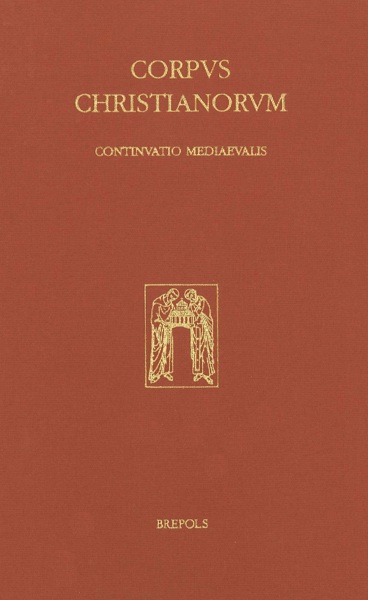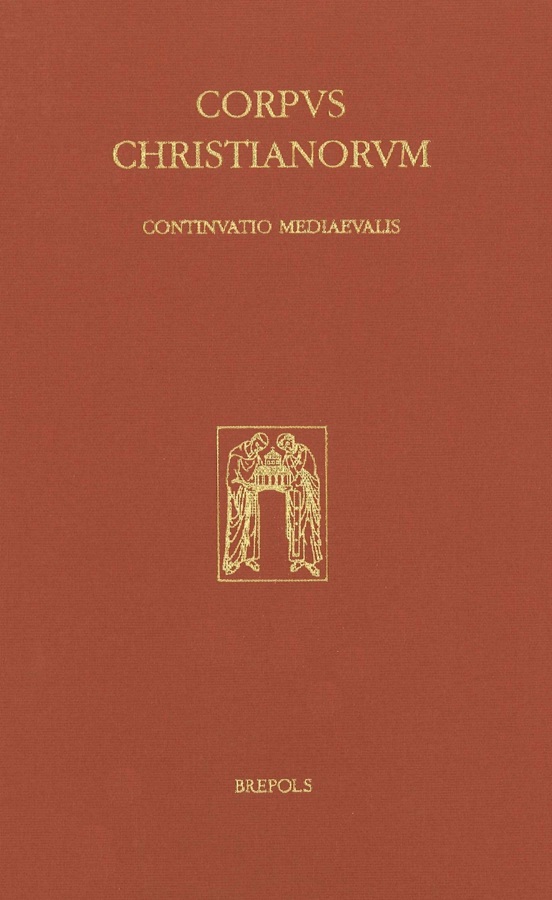
Anonymus
Extractiones de Talmud
per ordinem sequentialem
Ulisse Cecini, Óscar Luis de la Cruz Palma (eds)
- Pages: cx + 712 p.
- Size:155 x 245 mm
- Illustrations:3 b/w, 1 tables b/w.
- Language(s):Latin, English
- Publication Year:2019
- € 420,00 EXCL. VAT RETAIL PRICE
- ISBN: 978-2-503-58228-3
- Hardback
- Available
Prepared in Paris in 1244/45, the "Extractiones de Talmud" offer the first substantial translation of hundreds of Talmudic passages from Hebrew and Aramaic into Latin
"The editors demonstrate that the sequential and thematic versions have separate textual histories, for which reason they decided to present them in two separate volumes. In the original Latin, each version is accompanied by its own prologue as a self-standing document. (...) the Extractiones is not “the Talmud.” The Latin title is far more accurate. Its contents are curated selections extracted (like diseased teeth) from the Talmud in order to paint a predetermined image to support a polemical point and theological argument. (...) Together, the sequential and thematic anthologies shaped the Christian perception of the Talmud—and in no small part, of contemporaneous Judaism—throughout the Middle Ages until the sixteenth century if not longer." (David Stern, in Speculum 99/2, April 2024, p. 556-559, doi:10.1086/729395)
« Au vu de tous ces éléments, on peut soutenir sans difficulté que ce volume marque là une étape importante dans les études relatives à l’histoire des contacts et échanges interreligieux. Par ailleurs, l’ouvrage suscitera certainement l’intérêt des philologues, et particulièrement des spécialistes des questions liées au processus et aux méthodes de traduction. Ainsi donc, les AA. offrent une ressource précieuse susceptible d’alimenter de prochains travaux, qui pourront s’appuyer non seulement sur un texte établi avec précision conformément aux exigences actuelles en matière d’édition critique, mais aussi sur une étude approfondie de ce corpus et du contexte intellectuel dont il émane. » (Grégory Cless, dans Revue d’histoire ecclésiastique, 118/1-2, 2023, p. 333)
« La publication dans le Corpus christianorum des Extractiones de Talmud est un évènement majeur. » (Niek Thate, dans la Revue des études juives, 179/3-4, 2020, p. 442)
"It is difficult to overstate the significance of this edition. The Extractiones presents medievalists with the Latin Talmud which is at the center of thirteenth-century Christian-Jewish disputations and polemics and which also influenced later anti-Jewish sermons. (...) The Extractiones will undoubtedly prove useful to a wide scholarly audience." (Irven M. Resnick, in Revista Española de Filosofía Medieval, 27/2, 2020, p. 184-191)
« Il faut félicitér les éditeurs et éditrices, et aussi les responsables de la Continuatio Mediaevalis, de s'être engagés dans une publication difficile, nécessitant une collaboration interdisciplinaire de tous les instants. » (P.-M. Bogaert, dans Revue bénédictine, 129/2, 2019, p. 384-386)
Ulisse Cecini is a Latin philologist currently active as a postdoctoral researcher at the Universitat Autònoma de Barcelona. He obtained his PhD at the University of Erlangen-Nuremberg, with a thesis on Latin Qur’ān translations in the 12th and 13th centuries. His research interests are the relations between Christians, Muslims and Jews in the Middle Ages, translations from Arabic/Hebrew into Latin, translation theories and interreligious cultural transfer in the Middle Ages.
Óscar de la Cruz is Professor of Latin Philology at the Universitat Autònoma de Barcelona. He has published and is still working on editions of various Latin texts from the Middle Ages and the Early Modern Age which reflect the intellectual relations between the Latin and the Byzantine worlds. He has paid particular attention to the perception of Islam. His research interests focus on the edition of Latin texts translated from Greek, Arabic and – more recently – also from Hebrew/Aramaic.
In 1239 Pope Gregory IX wrote to kings and bishops across Europe, urging them to seize and examine the manuscripts of the Talmud in their dominions. As a result, a process against the Talmud took place in Paris in 1240. Though the Talmud went up in flames at the Place de la Grève in 1241/42, the controversy on the Talmud continued over the following years, since Gregory’s successor, Pope Innocent IV, called for a revision of its condemnation. At the centre of this revision are the 'Extractiones de Talmud', a translation of hundreds of Talmudic passages prepared during the years 1244/45 for Odo of Châteauroux, Legate of the Apostolic See, that served as the basis of his final condemnation of the Talmud in May 1248. This is the first edition of the Latin Talmud, which is a milestone in the long history of Christian-Jewish intellectual encounters.





